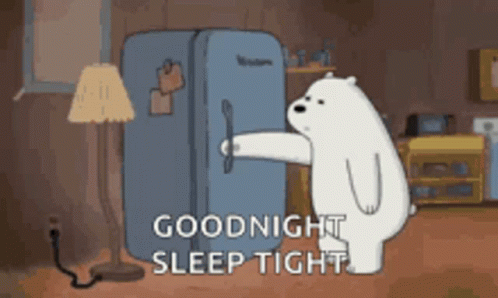Sleep series: Sleep hygiene tips
What are some general sleep hygiene tips I should follow? Here are some general sleep hygiene tips that you should follow to improve your sleep. Remember, sleep hygiene is not just about taking a shower before beditime !

What are some general sleep hygiene tips I should follow?
Here are some general sleep hygiene tips that you should follow to improve your sleep. Remember, sleep hygiene is not just about taking a shower before bedtime!
- Try to attain adequate sleep by getting the right amount of sleep for you.
- Your bedroom should be used only for two things, sleeping and having sex. Using electronics (e.g., phones, tablets and watching TV), doing work and working out in your bedroom can negatively affect your sleep.
- Improve your sleep environment and your sleep quality by keeping your bedroom at a cool comfortable temperature, investing in a good mattress, shutting out environmental light that is coming from inside and outside your bedroom (street light, bedroom lights, electronic screens etc) and by minimising sleep-disruptive environmental noises.
- Avoid having foods and beverages close to bedtime that negatively impact your sleep. Examples of foods and beverages that negatively affect sleep include caffeinated drinks (e.g., coffee, energy drinks, caffeinated teas and hot chocolate), chocolate (as it contains caffeine), alcohol and heavy and fatty meals.
- Avoid the use of sleeping tablets, especially for long periods. They are addictive and negatively affect sleep and daytime functioning. They should only be used as last resort and then only for a short period of time. Opt for other non-pharmacological methods such as improving your sleep hygiene or by participating in Cognitive Behavioural Therapy for Insomnia (CBT-I) programs.
- Exercising during the day, especially in the morning or before 4-5pm is beneficial for your health and sleep but you should avoid exercising late at night (e.g., after 7pm).
- Snoring is treatable and should not be brushed aside as merely being annoying - it negatively impacts your health and sleep (and your bed partner’s sleep!)
- Avoid taking naps, unless absolutely necessary and keep them as short as possible (max 20-30 minutes). Napping during the day can make it harder for you to sleep at night. If you excessively require napping everyday it could be a sign that you are not getting enough quantity and/or quality of sleep and/or that you have an underlying medical condition, such as sleep apnoea or narcolepsy.
So have a good nights sleep using these tips, keep safe.

Foot note: In 2020 I worked alongside three academics who helped build a CBTI sleep therapy app for me. I decided against starting the project as I felt the medium at the time (mobile phone apps) was not immersive enough to do the excellent work justice (but watch this space).
The three were Achilleas Pavlou who is currently a Lecturer in Psychology and Clinical Communication Skills at the University of Nicosia Medical School. Tania Karina Garcia Vite BSc Psychology, MsC Sleep Disorders. Dr Nicholas Cooper Senior Lecturer Department of Psychology University of Essex.
The sleep series is thus based on that collaboration...





